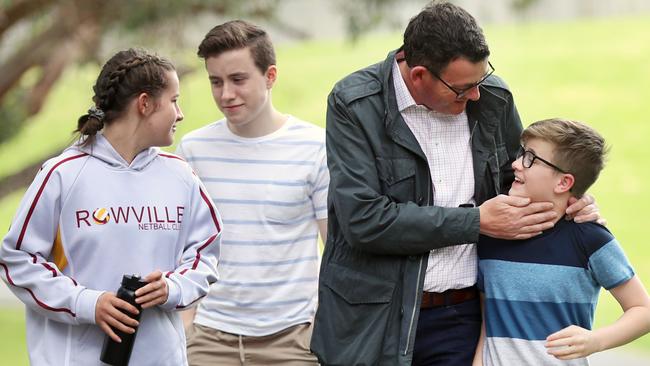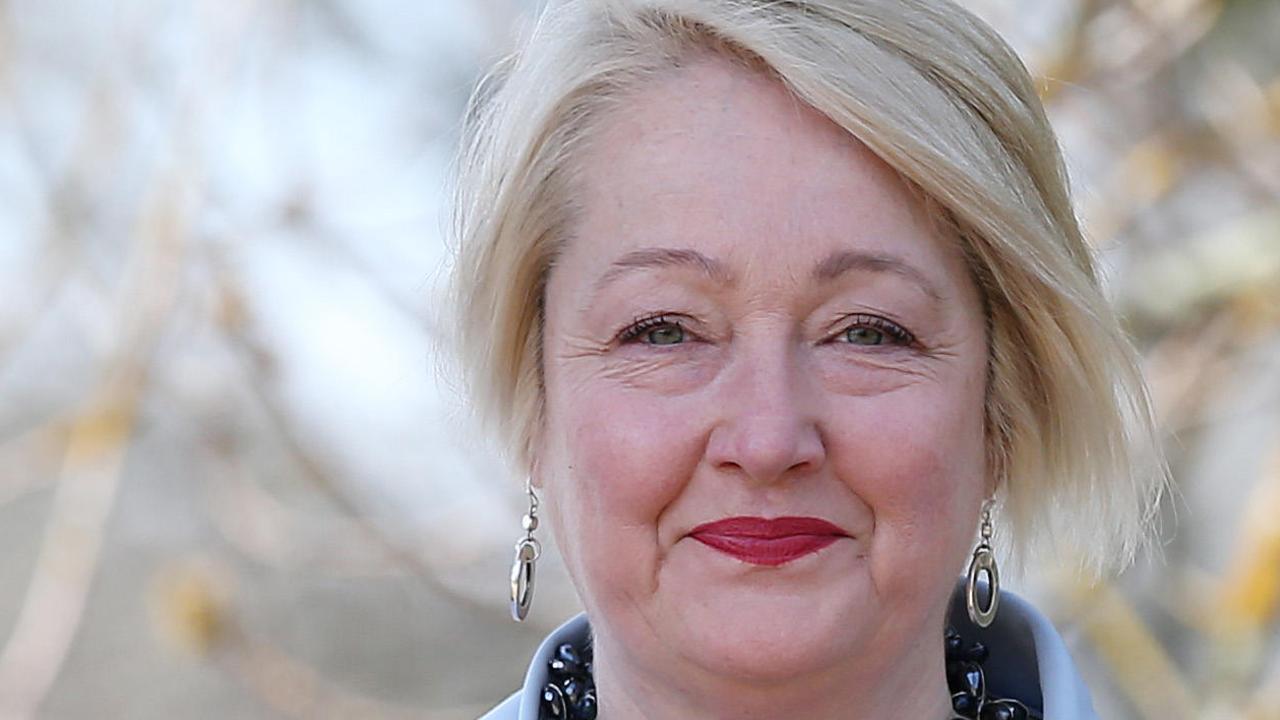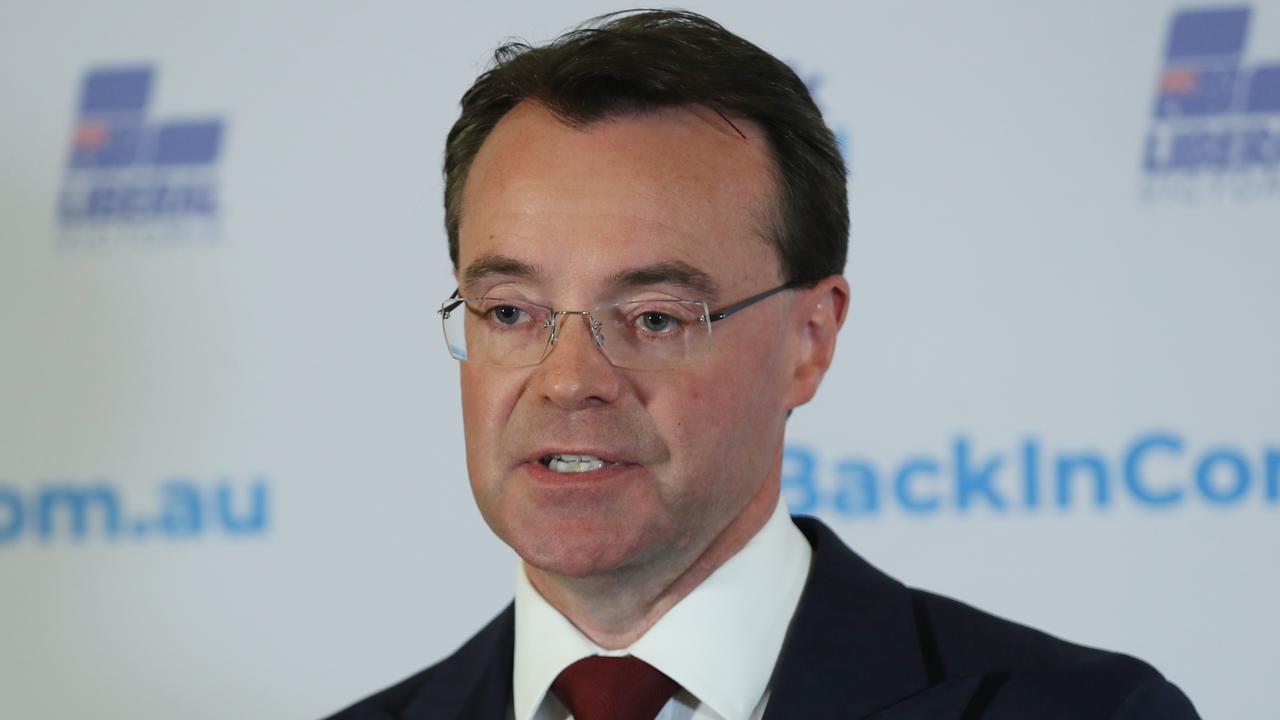Daniel Andrews: The suburban family man behind the politician
DANIEL Andrews nominates level crossing removals and a royal commission into family violence as his greatest achievements in government. But there are some promises the Premier hasn’t been able to keep. He reveals them in his first campaign interview.
Victoria State Election
Don't miss out on the headlines from Victoria State Election. Followed categories will be added to My News.
EXCLUSIVE: IT’S a tick before 6pm, and Premier Daniel Andrews could go a beer.
It’s been a big day. He has announced a royal commission into mental health, citing kids at his children’s school who have taken their own lives.
He has also fielded questions — 13 in all — about the red-shirts scandal. He borrowed from Monty Python in refusing to address whether his ministers were co-operating with a police investigation into the misuse of parliamentary funds.
RELATED CONTENT:
LABOR VOWS TO BOOST RAIL CARPARKS IN MELBOURNE’S WEST
LIBERALS PLEDGE TO CUT REGO FEES FOR P-PLATE DRIVERS
COALITION TO FAST-TRACK RIGHTS FOR FIREY CANCER COMPO
Andrews chuckles at the British comedy reference. “Was it only 13?” he asks, still smiling. “Did my answer change at any point? I don’t think it’s going to change now.”
His sleeves are rolled up, and he leans back in his chair, perched in a first floor office of the Australian Nursing and Midwifery Association near the Queen Victoria Market. He has opted for coffee instead of that beer.
The afternoon sun streams through a window, in keeping with his mood. He is welcoming of inquiries about keeping down the golf handicap (“luck”) and kids’ hockey late on a winter’s night (“pretty punishing”).

As he tells it, he’s 46, a Mulgrave dad who misses too many school awards nights and musicals. Not long ago, his son, Joseph, was confirmed without his dad being there.
There’s never enough time — but, then again, he says, how many working families have enough time?
Delivering promises to Victoria has meant breaking promises to his family. They understand, he says, and he does his best. When random openings arise, you might find the Victorian Premier at the local skate park with Joseph.
Andrews is a “big fan” of wearing trackies at home, though he doesn’t tell you this. Home is a place where Thursday is bin night, and making school lunches is most nights.
The father minds the roost while the mother trains in the early hours. Their closest friends are the mums and dads who have bonded with the Andrews while huddled and shivering at kids’ sport.
Andrews eats takeaway on the weekends. Other indulgences include TV binges, such as The Crown, consumed with wife Catherine and daughter Grace, and Band of Brothers, watched with son Noah.
He went back to work too early when his father died after a long illness in April 2016. Yet that’s the bargain he embraced — the one chance to do what he does.
Or, as he puts it: “I think I’ve always known that if you get given the opportunity, you have the obligation to get s--- done. It’s as simple as that.”
His manner is a contrast to the businesslike patter of his press outings, especially as political sores — from the red-shirts scandal to the United Firefighters Union/CFA dispute — pulse as election points.
To these issues, he has a coverall response: no regrets.
“Seriously, you just don’t have enough time for it and it’s not particularly healthy,” he says. “Besides, there are plenty of other people around the place to nominate the things they think can be done better.”
Andrews, perhaps because of his seeming lightness, almost presents as a version of the long-claimed but rarely sighted jokester referred to by his wife and close friends.
Today, he’s a study in ease and ordinariness. He seems unscripted, not at all like a character dropped into a staged event.
Melbourne — the only city in the world with a ring road that isn’t actually a ring, he says at one point.
The current train network is a “system that just doesn’t work”, he says, in promoting his $50 billion Suburban Rail Loop.

No bulletpoints here. No ticking off of fingers.
“It’s a serious business,” he says, again smiling, when asked why he isn’t known for cracking gags when the cameras are rolling.
Indeed, it is. Driving the future of Victoria is for the taking on November 24.
Andrews has spoken of the challenges for a city that is set to bulge to 8 million people.
The city, as the catchcry goes, has “growing pains”, and Andrews acknowledges traffic congestion and roadworks as a price for building blocks of the future.
He has an earnest message about unfinished business. He’s in campaign mode — the official ALP launch is today — which probably counts out his usual Sunday pursuit of a few holes at Kingston Heath Golf Club.
The campaign means he wants to talk about what’s he’s done and what he wants to do next, notwithstanding the baggage that his government, like all governments, has accumulated over its term.
The ALP has led polls, but Andrews takes nothing for granted.
“A handful of votes in a handful of seats”, he says, could determine the next Victorian government.
READ MORE:
WHERE TO 2018 STATE ELECTION WILL BE WON
DANIEL ANDREWS AND MATTHEW GUY READY TO RUMBLE IN ELECTION
LABOR STILL LEADS POLL AS VOTERS SHY FROM HUNG PARLIAMENT
He is proud of his speed of reform. Getting it done, or at least a version of that message, will be a campaign mantra. Yet ask Andrews about his proudest achievements and he seems briefly lost.
“Everyone expects you to have a prepared answer to that question,” he says.
“I don’t spend a lot of time reflecting or looking backwards. (And) we have got an extraordinary amount done in the past four years.”
He nominates level crossing removals — a promise which contributed greatly to winning the sandbelt seats in the 2014 election. Andrews recalls the joy of helping remove three boom gates at the end of projects in his electorate.
At one, a bloke in a hard-hat and fluoro called out to him. He had gone to school with Andrews: “He told me how pleased he was that he had this long-term contract of work and he’d never been closer to paying off his house because of the work he’d been doing on level crossing removals.”
Andrews cites the royal commission into family violence, because it will “make a big difference”.
It’s the “Victorian way” to lead the nation, he says, and he nods to political foes Jeff Kennett and Ted Baillieu for their endeavours in tackling depression and sexual abuse.
He’s proud of the assisted dying laws, of which he was once — as a Catholic — opposed. His beliefs shifted after his father, Bob, developed a rare cancer.
“It’s about being absolutely about your convictions,” Andrews says of politics, “living your values and getting things done and all of that certainty.
“But every now and then, you’ve got to be open to the notion that you’re not right, you haven’t got it right, that you need to have another think about it. It wasn’t until I saw in very personal terms what can be described as a ‘good death’ that I had some time I needed to reconsider my views on how we might provide for those who, without compassion, had a very ‘bad death’.
“Good death” or not, Andrews concedes an error — he needed time off.
It goes to his frantic schedule, driven in part by a slack pace he has been said to observe in some predecessors.
He returned to work soon after his father died because of an upcoming state Budget. He should have had a few weeks off, he now says, but “I didn’t want to miss it, I didn’t want to be not part of it”.

His hardest role lay in the grief and confusion of the Bourke St rampage. Andrews was affected by his meetings with families of those killed.
“I made a promise to each of them,” Andrews says of the grieving families.
“I said that we would have the toughest bail laws in the country and we got on and did that. It wouldn’t bring back their loved ones but that was what we had to do: learn from such a terrible act and make sure we were best placed to never see that sort of horror happen again.”
Law and order has dominated the headlines. It isn’t about to go away either, as Andrews agrees.
He called youth crime a “significant challenge” in July after the explosion of African gang violence and the kinds of terror, such as home invasions and carjackings, which were once foreign to Melbourne.
His government — and Victoria Police — were widely accused of being soft on crime.
He says some offenders need to be treated “harshly, firmly”, in describing a one-on-one approach that draws on different sectors, including police. He speaks of encouraging arrest rates and crime statistics, but agrees that more has to be done.
“We’ve been tough, and criticised for it, where we have needed to be,” Andrews says.
“We’ll continue that. The key point here is that you’ve got to be smart as well. That’s about investing not just in more police … but also making sure you’re investing in TAFE, skills and jobs and every resource available. Is it over? No.”
Andrews sounds most strident in his defence of the East West Link contract.
Critics decry a decision that cost the state $1 billion to not build a road. Andrews maintains the same decision saved the state billions of dollars by shelving a “booby-trapped contract”.
He says he is not frustrated by the enduring animosities of the UFU dispute, which erupted in early 2016 and triggered the resignation of emergency services minister Jane Garrett.
Volunteer fireys protested in a show of regional disenchantment.
Andrews says he has no control over — nor takes little notice — of news agendas.
He says people are free to determine what’s important to them.
On questions of infrastructure spending and debt, he argues that his government has delivered surpluses and retained triple-A ratings.
“The economy is strong, the economy is growing, and that’s really important for livelihoods, for jobs, for people’s prospects,” he says.
It’s the sort of talk you’ll hear in coming weeks on the campaign trail, often with wife Catherine by his side.
A veteran of the hustings, she’s looking forward to some together-time, albeit shared with the rest of Victoria: “It’s quite nice because I get to spend a little bit more time with my husband, who’s incredibly funny and who I miss a lot,” she says.


